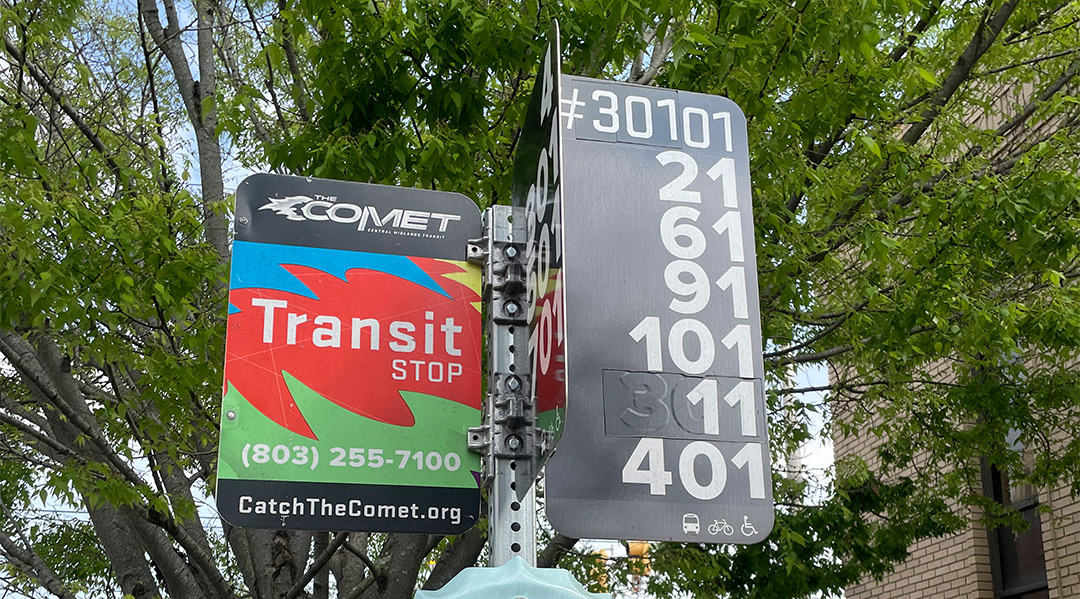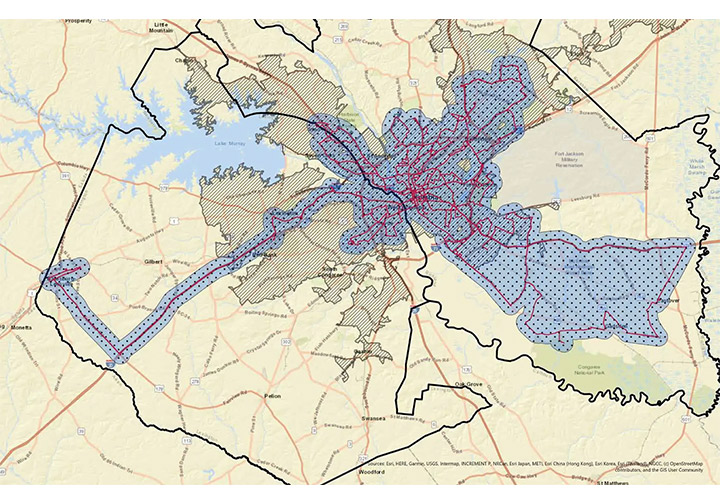The Comet offers several alternatives to its traditional bus system routes to help meet residents’ travel needs. (Photo by Hanna Schatteman)
The Comet, the Midlands transport service, is ramping up to draw attention to its alternative transportation services.
The bus system has offered mini-bus and volunteer car services for more than a year.
But not everyone knows to take advantage of those.
The S.C. Partnership of Disability Organizations celebrated its 34th Disability Advocacy Day this week.
The organization knows about the Comet’s alternative transportation offerings.
But on Wednesday, it was advocating for further safety and access for the disabled.
In South Carolina, people 65 and older make up 18.6% of the population. People with a disability under the age of 65 account for 10% of the population, according to 2021 census numbers.
“There is a large population of people with disabilities in the central Midlands that were outside of the reach of the common service area that did not have options to be able to travel around,” said Brittany Terry, mobility management specialist with Able SC through The Comet.
Such services include travel training, Dial-A-Ride Transit service (DART), Volunteer Transportation (VTRIP), Pickup Program (PUP) and more.
People with disabilities who can’t board the buses or easily access bus stops qualify for the DART service. The service meets riders at a predetermined location and takes them on their route. Those who fill out an ADA certification application are qualified to use the service.
Travel training is a one-on-one training program that allows people with disabilities to learn how to use a fixed transportation system.
Two newer programs, VTRIP and PUP, started in January 2021. They focus on people who live outside the Columbia area serviced by buses.
VTRIP reimburses friends, family and anyone else who can give car rides to the disabled or older residents. The service covers up to 150 miles of rides a month.
PUP offers up to $100 a month for rideshare services, such as Uber, Lyft and taxis.
While these programs have benefits, they face limitations.
VTRIP relies on personal connections. PUP does not guarantee that rideshares will have the proper vehicles to transport people with different disabilities.
Educating people still is a challenge.
“One of the barriers that we’ve also come across is the misunderstanding of what the Columbia urbanized area is and how expansive it is,” Terry said.
VTRIP and PUP have just more than 36 users between the two programs, with some users registered to participate in both.
One disabled South Carolinian responded to a survey conducted by the state’s Statewide Independent Living Council. The person has been blind for 20 years and said the lack of alternative transportation affected their lifestyle.
“If it was not for family and friends, I would not have been able to raise my three kids and keep them active in the community because of the lack of public transportation, rideshare services, or local independent living training services,” the individual said.
They said they haven’t tried to find a job because they don’t have access to dependable transportation.
Comet employees are trying to change that.
They plan to reach out to neighborhood associations to make residents aware of the programs and try to make booking rideshares easier for people who might struggle to use technology.
“Transportation’s important for people with disabilities because they still have to get to work, (get) healthcare access and just be part of their community,” said Mary Kopp, director of public relations and special events for Able SC.
The Comet also is training drivers and employees to manage the transportation needs for people of different abilities.
But Comet staff members acknowledge there is still more to be done, even outside of their reach.
“I do believe an accessible environment — to be able to get to and from places — is very important,” Terry said.



